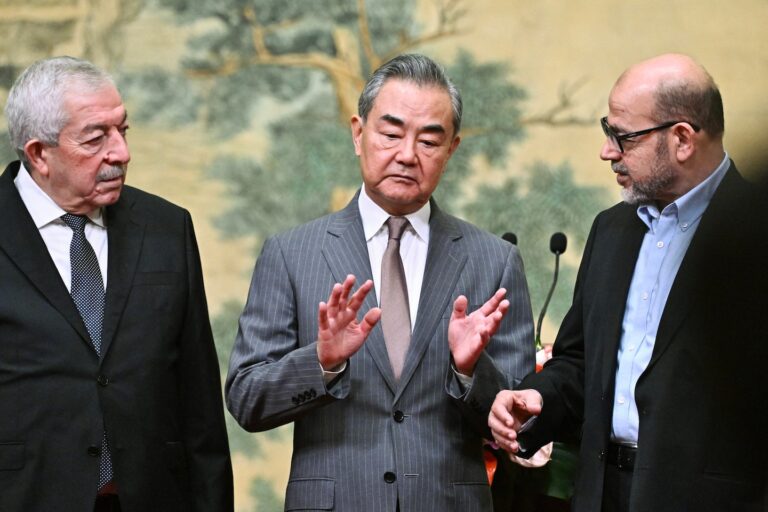China did not immediately release the text of the so-called “Beijing Declaration” or a full list of Palestinian leaders who took part in the talks hosted by Foreign Minister Wang Yi.
Speaking after the meeting, Foreign Minister Wang called the talks a “historic moment for the cause of Palestinian liberation.”
“The most notable thing is that an agreement was reached to set up a transitional national reconciliation government to administer Gaza after the war,” Wang said.
He reiterated China’s support for a “comprehensive, lasting and sustainable ceasefire” and the holding of a large-scale “international peace conference” toward a two-state solution.
Photographs from the meeting showed Wang speaking with Mahmoud al-Arou, vice chairman of the Fatah Central Committee, and senior Hamas official Musa Abu Marzouk. Wang said the ambassadors of Egypt, Russia and Algeria were also present at the meeting.
Get caught up in
Stories to keep you up to date
While Beijing’s attempt to broker talks in April ended without a joint statement, the talks will nonetheless help the Chinese Communist Party position itself as an international mediator amid a bitter standoff with the United States, including in the diplomatic sphere.
China brokered a de-escalation between Iran and Saudi Arabia last year, putting Washington in the awkward position of praising a major Middle East deal secured by its main geopolitical rival. China has also positioned itself as a mediator in the conflict between Russia and Ukraine, pushing a 12-point proposal to end it.
In June, Chinese diplomats rejected Swiss-sponsored talks to end the Ukraine war, claiming they were politically motivated and meaningless unless Russia was present. Beijing, along with Brazil, proposed a different agenda for reaching a negotiated settlement.
Ukrainian Foreign Minister Dmytro Kuleba arrived in Beijing on Tuesday for talks with his Chinese counterpart and hopes to gain Chinese support in putting an end to Russian aggression.

